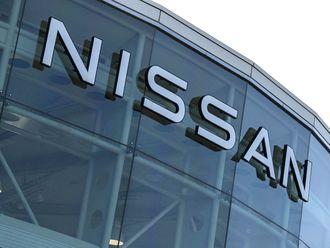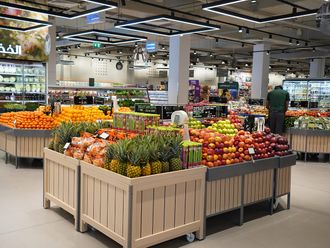In the previous column, I stated the essential ingredients for a successful e-commerce business. We spoke about product and technology and touched on Middle East & North Africa (Mena) market specifics. Now here is the rest that you need to get right if you want to run a successful e-commerce operation.
* Marketing
Budgets for marketing are usually huge in the e-commerce world and represent a substantial cost factor in the profit and loss statement. It is important to be smart in the way that marketing is done. It is easy to spend hundreds of thousands of dollars.
A smart way, especially in the Mena region, is to involve influencers. The largest market for any relevant e-commerce company in the region is Saudi Arabia. There are key influencers such as Manal Al Alem, Joelle Mardinian, Noha Nabil and others that you need to get on board.
In Saudi Arabia, the top 10 female influencers have significant following in the millions. Influencers are not cheap to work with but they will reach your target audience directly and have a powerful impact. And there are always creative ways to work with influencers apart from paying them in cash. Why is social media so big in the Mena region? It’s mainly due to the fact that 50 per cent of the Mena population is below the age of 30 years. In Saudi Arabia it is even 67 per cent of the population.
These millennials have a huge appetite for social media consumption. Saudi Arabia has the highest per capita video (YouTube) consumption in the world. So be aware of this when planning your marketing campaigns.
* Customer experience
There is no rocket science to this — a happy customer is a must for any successful business. But how to achieve this?
It all starts with transparency: no hidden costs, clear product descriptions and high quality product images are key for a great customer journey. A smooth check-out process, order tracking, and quick delivery come next.
Note that in this region, there is a clear correlation between the delivery time of an order and a customer’s willingness to accept the product. Remember that 90 per cent of the business in the region is conducted via cash-on-delivery (COD). If you don’t deliver fast — within two days max in city areas and days max in other areas — then you have a high chance that the customer will not respond to a courier call.
You will not deliver the order and you will have an unhappy customer that will not order again. Inventory management plays a key part in your ability to deliver fast, or deliver at all. It is one of the main pain points of every e-commerce business.
It needs your utmost attention from the start of your business as it not only effects your customer satisfaction and sales, but also your cash flow. You might end up with huge piles of unsold stock that you have paid for and that you cannot return to your suppliers.
If you fail in effective inventory management, you will fail with your whole business. Handling of questions, complaints and returns is the final step in the customer journey. Make it easy for the customer to return a product.
In today’s competitive environment, you have no choice than to apply a “no questions asked” return policy. Ensure to calculate those costs into your business plan.
In these two columns, I have discussed the essential ingredients (the “clear part”) of an e-commerce business and highlighted some specific characteristics of the Mena region. In the next one, I will discuss the art of mixing the above ingredients in the right way to build a successful e-commerce business with a specific view on the Mena region.
Michael Truschler is an investor and analyst in digital media.












